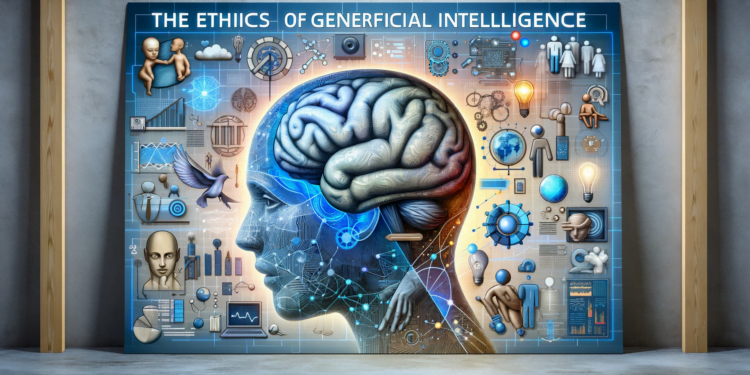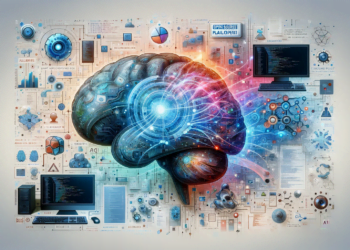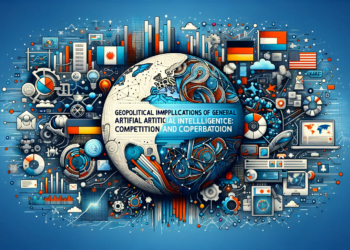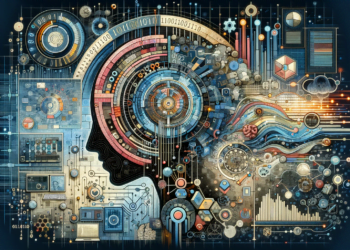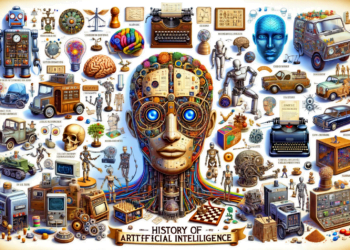– Objective: Please translate the following text from Spanish to English with the highest accuracy possible, paying special attention to maintaining the original meaning and using idiomatic expressions and correct grammatical structures in English. The goal is for the translation to sound natural and fluent to a native English speaker, avoiding any sense of strangeness or error due to translation.
- Context: Artificial Intelligence
- Markdown: respect the original markdown in the translation
- Text to translate:
General Artificial Intelligence (AGI), that entity capable of understanding, learning, or performing any intellectual task at a level comparable to that of humans, is postulated as the next horizon of AI research. In contrast to “narrow” AI systems specialized in individual tasks, AGI promises to revolutionize countless fields, from medicine to global governance. However, its potential is accompanied by considerable ethical challenges that require rigorous analysis, pluralistic debates, and robust policies.
Technology and Fundamental Theory of AGI
Self-Learning and Adaptability Principles
AGI is built on machine learning algorithms with the capacity for self-improvement. Recent advances in reinforcement learning and genetic algorithms point towards systems that can adapt their learning strategies to increase their effectiveness independently. This paradigm of continuous self-learning forces us to rethink the foundations of safety and control in AI systems, as an AGI will be designed to operate beyond contexts anticipated by its creators.
Advances in Neural Networks and Complexity
Deep neural networks are the cornerstone of AGI, and recent research into architectures like Transformers and GANs (Generative Adversarial Networks) suggests pathways for building models with generalized cognitive abilities. Here, distributed artificial cognition, which mimics the diversity and connectivity of the human brain, promises to be decisive.
Ethics and Responsibility in AGI Development
Equity and Bias
The creation of AGI involves a substantial risk of incorporating or exacerbating existing prejudices in decision-making. Regular model auditing, data disaggregation techniques, and unbiased training are crucial for mitigating biases.
Privacy and Autonomy
Privacy concerns are non-trivial; an AGI with the capacity to understand and process vast amounts of information presents unprecedented challenges. Thus, homomorphic encryption and privacy preservation techniques in machine learning become paramount.
Transparency and Explainability
In the era of the black box, ensuring the transparency and comprehensibility of AGI decision-making processes is vital. Interpretability models such as LIME or SHAP help decipher the reasoning behind decisions, essential for trust and accountability.
Emerging Practical Applications
AGI in Healthcare
In healthcare, AGI could revolutionize diagnosis, treatment, and disease management through systems that learn and adapt to new conditions autonomously. Examples include self-directed surgical robots and diagnostic systems with continuous updating capability as new information becomes available.
AGI in Governance and Public Policy
AGI offers the possibility of modeling and implementing highly efficient governance systems. The use of AGIs to simulate the effects of economic or social policies could aid in evidence-based decision-making. Here, AGI-based agent modeling emerges as a critical tool.
Ethical Challenges of Real-World Cases: Case Studies
Dual Control and Military Use
The development of AGI carries the risk of dual-use: civilian and military applications. A recent case has been the analysis of the GPT framework for use in autonomous drones. This reveals the need for international conventions to regulate its use and prevent arms races centered on AGI.
Automation and Employment
AGI raises critical questions about the future of work, where robots and autonomous systems could undertake tasks currently performed by humans, causing job displacement. A case study is the European response plan that prioritizes re-skilling and creates social safety nets to counteract rampant automation.
Future Directions and Innovative Possibilities
AGI and Artificial Consciousness
An emerging debate is whether AGIs could eventually experience forms of consciousness. The integrated information theory (IIT) provides a framework for understanding consciousness that could be applicable to advanced AGI systems, leading to a new era of AI rights and synthetic personalities.
Human-AGI Symbiosis
The possibility of merging AGI with humans through brain-computer interfaces raises questions about a new hybrid identity. Efforts from projects like Neuralink underline the importance of establishing clear ethical protocols for such innovations.
Conclusion
The development of AGI carries with it the promise of unprecedented milestones in human potential, but requires a sharp and forward-looking ethical lens to ensure that these advances are made within a framework of respect for universal human values and sustainability. The scientific community, along with regulators, philosophers, and the general public, have the responsibility to collaborate so that AGI progresses in harmony with the ethical principles that uphold dignity and life on our planet. It is these collective dialogues and decisions that will determine the ethical landscape in which AGI will evolve and become integrated into society.

